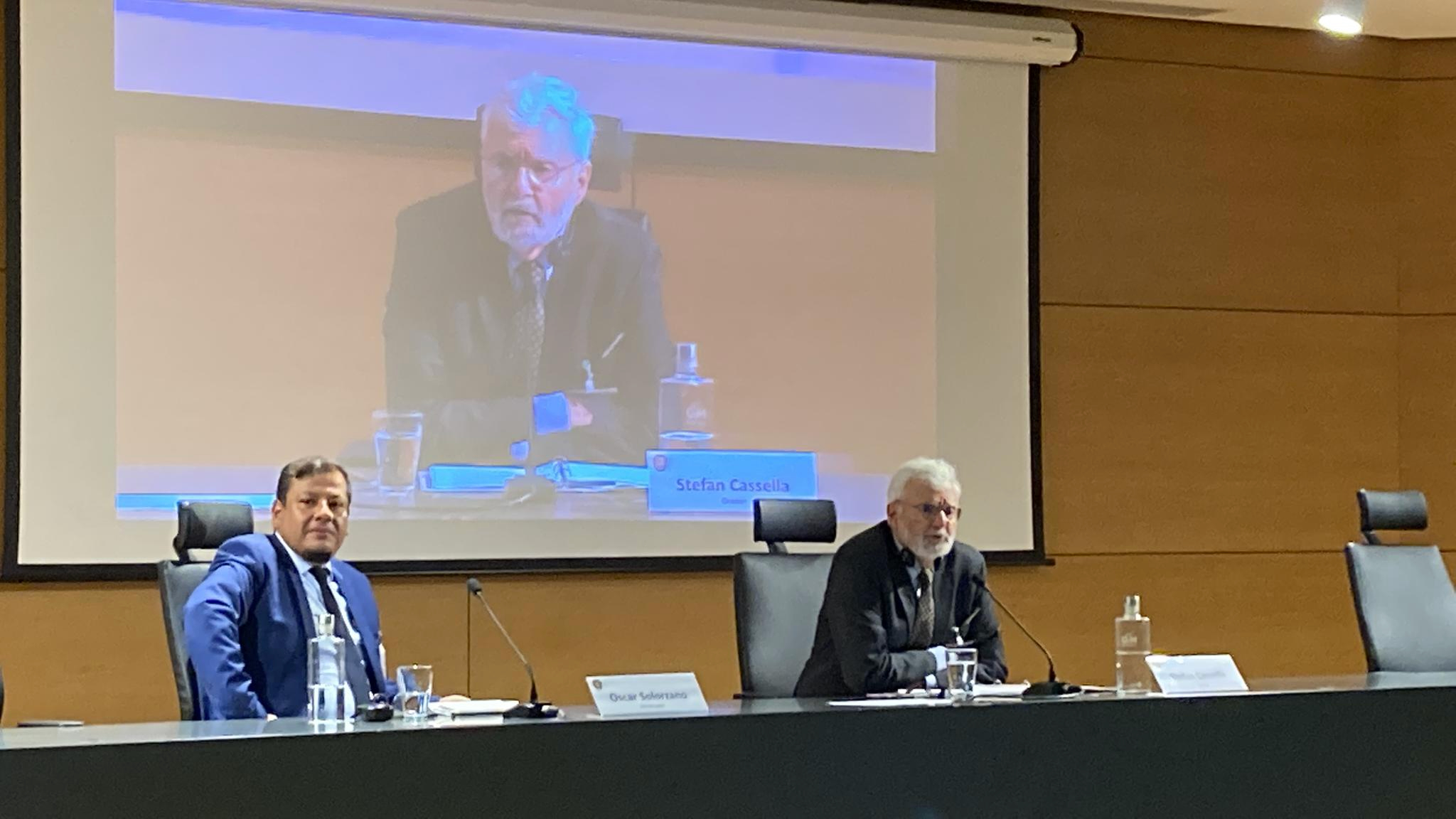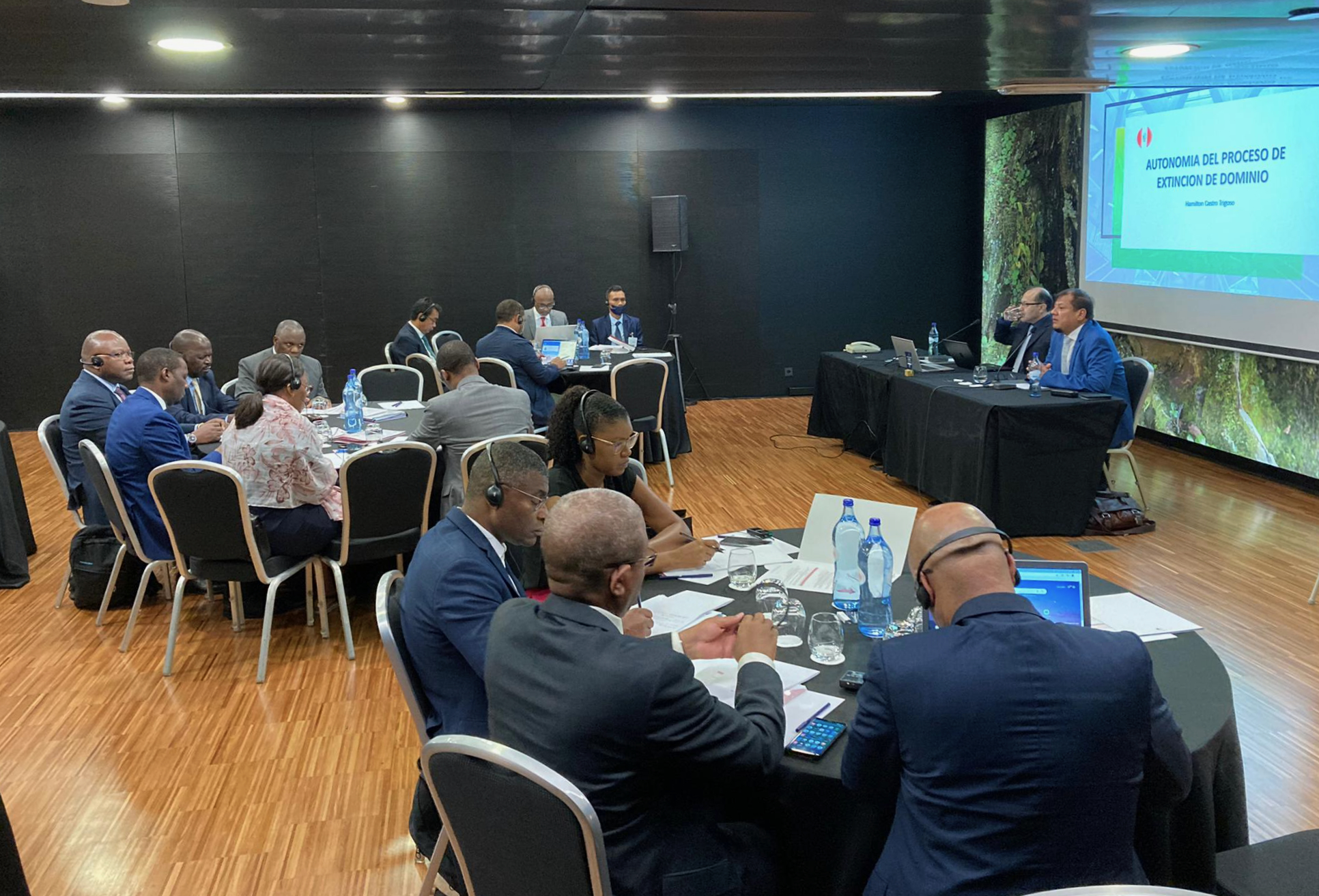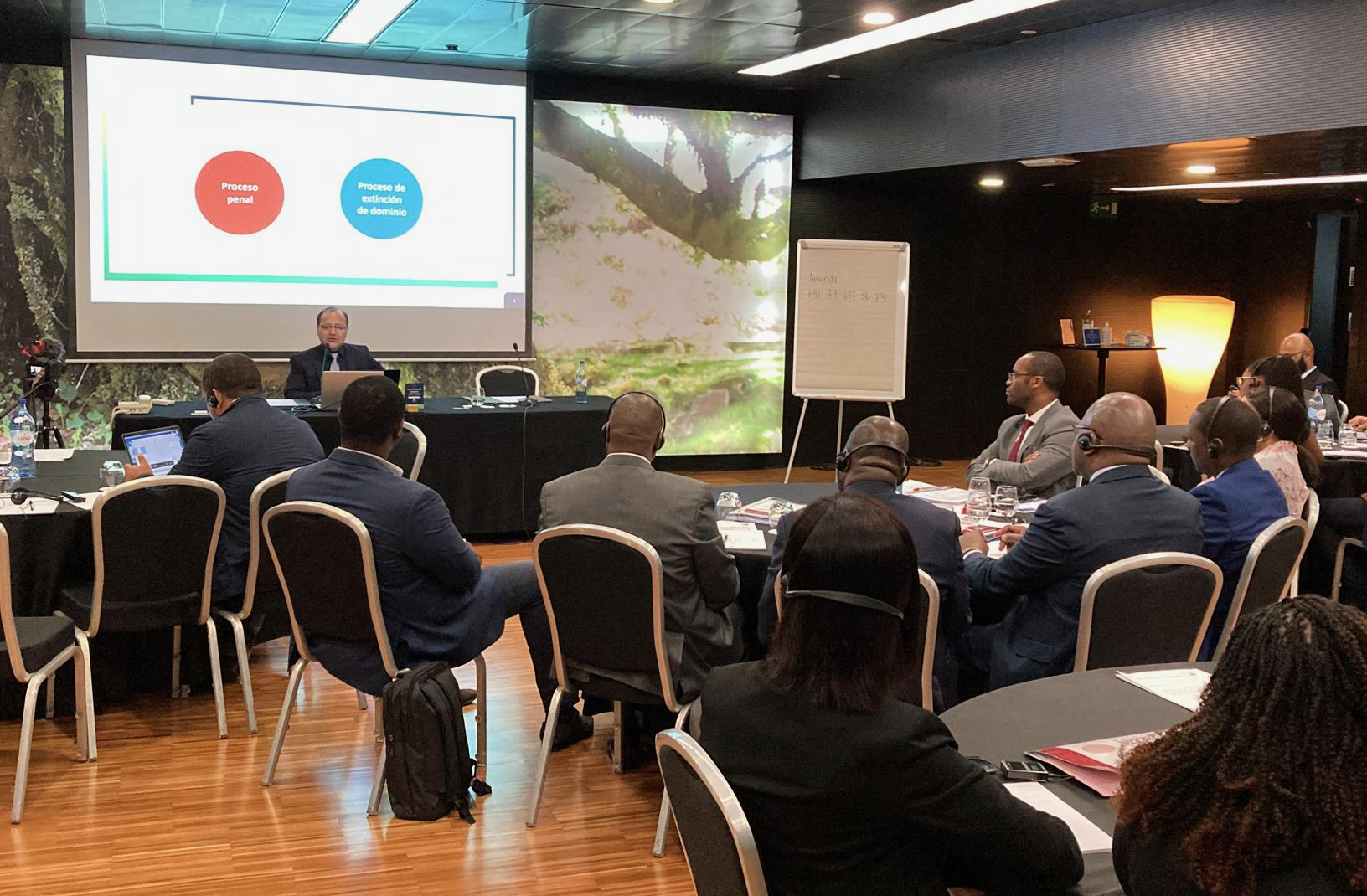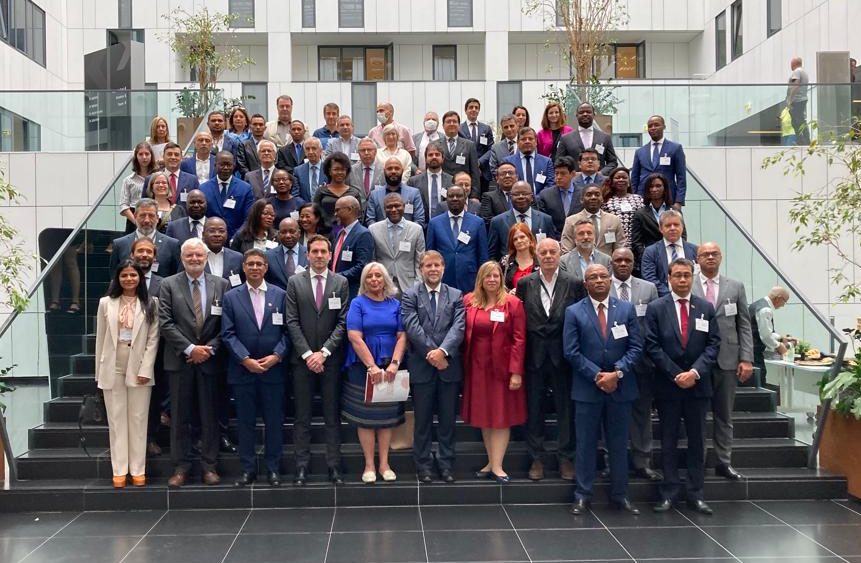Lisbon Conference 2022: Lusophone countries come together to expand the asset recovery toolbox
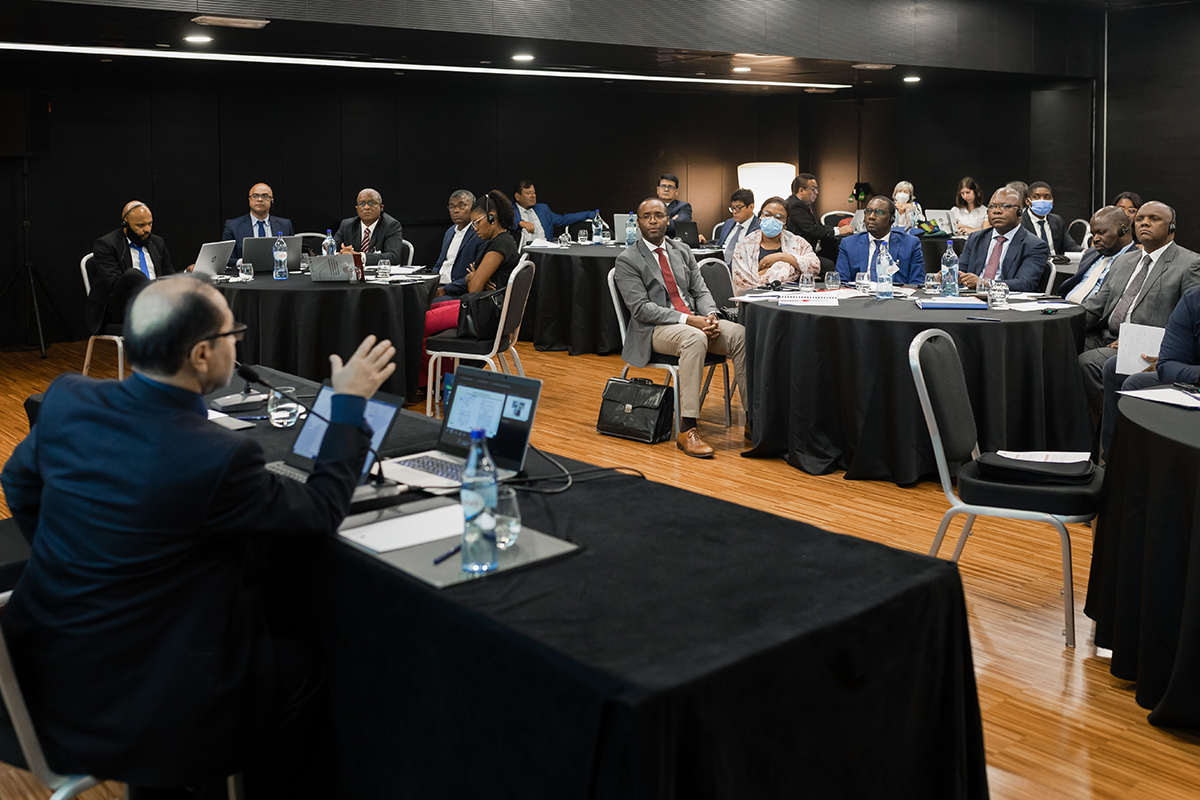
National authorities in Lusophone countries, including Angola, Cape Verde, Mozambique and Timor-Leste, have taken an important step forward in exploring the potential of civil confiscation laws to recover illicit assets. The Lisbon Conference on 5-7 July 2022 saw high-level representatives from these countries come together with international experts. Together, they explored non-conviction based forfeiture (NCBF) laws – mechanisms to seize and confiscate proceeds of corruption and other crimes when a criminal conviction is not possible.
The Conference sought to broaden and extend understanding of NCBF and its application in Lusophone countries among the approximately 200 participating prosecutors, judges, researchers, academics, lawyers and others.
The delegations from Angola, Cape Verde, Mozambique and Timor-Leste included representatives from the Parliament, Supreme Court, Ministry of Justice, Office of the Attorney General, Financial Intelligence Unit, and others. The Office of the Attorney General of São Tomé and Príncipe also sent a delegation.
This broad international representation, at the highest levels, was important. Political will, trust and cooperation across institutions and borders are crucial to developing and implementing such laws.
Debates and perspectives over three days
Day 1 of the Conference took place at the Auditorium of the Portuguese Judicial Police and was also attended by the Attorney General of Portugal. Eight international experts addressed topics including the importance of asset recovery in fighting corruption and how international cooperation in NCBF cases works in practice.
This day was also open to virtual participation, with over 110 anti-corruption practitioners dialling in from Angola, Brazil, Cabo Verde, Mozambique, Portugal and Timor-Leste.
Day 2 involved structured face-to-face discussions between the country participants and experienced Portuguese prosecutors. These unpacked the practical aspects of adopting and applying NCBF mechanisms in the respective countries.
Day 3 introduced participants to Peru’s experience in the application of its extinción de dominio (NCBF) regime to confiscate assets domestically as well as internationally through mutual legal assistance. Part of this knowledge transfer included focusing on the emerging jurisprudence in relation to the application of Peru’s NCBF law.
Ultimately, this knowledge should help participants to design and implement effective, appropriate NCBF mechanisms in civil legislation, as well as remedy gaps in existing criminal confiscation legislation.
Key takeaways
A major takeaway was that existing criminal legislation on asset forfeiture needs to be improved to enable the NBCF mechanisms that already exist in this legislation to be effectively applied in criminal cases. One example is that proceeds of crime, and not only instrumentalities of crime, should be eligible to be forfeited through NCBF processes in all countries – something that is not currently the case.
Improving and harmonising existing forfeiture mechanisms in this way would strengthen confiscation in criminal processes. This would allow countries to examine the possibility of civil confiscation for situations that cannot be resolved in a criminal process using the existing mechanisms.
Other takeaways included:
- Due process must be ensured in NCBF cases, including guaranteeing an adversarial procedure so as to safeguard respect for property rights.
- Bona fide third-party rights are widely secured and recognised in existing criminal legislation across all countries. It needs to be made clear that the same principle applies to NCBF processes.
- NBCF cases are determined by applying the civil standard of proof (balance of probabilities), which is a key difference from criminal proceedings. Some existing criminal codes already allow for confiscation to be determined on the civil standard of balance of probabilities. Applying this in practice will already allow judicial actors to confiscate more illicit assets.
- The legal nature of confiscation is still a topic of debate – in particular, the idea that confiscation is not a sanction, and is therefore a doorway to civil confiscation.
A worldwide initiative
The Conference is supported by the Bureau of International Narcotics and Law Enforcement Affairs (INL) of the U.S. Department of State, under the wider programme: Supporting stakeholders in adopting non-conviction based forfeiture as a tool for asset recovery (in Portuguese: Apoio à adopção de legislação de confisco civil como ferramenta para a recuperação de activos).
The Basel Institute on Governance is implementing the two-year programme, which seeks to help authorities in 10 countries increase their capacity to recover stolen assets through effective, appropriate NCBF legislation.
The Lisbon Conference was the first face-to-face meeting of the Lusophone NCBF Knowledge Community and wider network established through the project. Meeting virtually until now, the Knowledge Community offers a space for participants to exchange experiences on using civil (non-conviction based) confiscation methods, analyse and debate the challenges and benefits of such laws for asset recovery, and disseminate best practices. It will serve as an excellent forum for working on the needs identified in the conference, such as to improve and harmonise existing forfeiture mechanisms between the countries.
Representing the United States at the Conference, Tamara Schuman, Assistant General Counsel, Federal Bureau of Investigation emphasised that the U.S. uses NCBF laws extensively, saying:
“NCBF is a critical tool for asset recovery particularly in cases where the proceeds are transferred abroad or attempts have been made to hide ownership. In fact, in many instances it is the only mechanism at the disposal of prosecutors and law enforcement to recover the proceeds of crime and restore justice to the victims... Enacting and using NCBF laws will provide additional opportunities to pursue justice in your countries and to build strategic alliances, cooperation and international partnerships.”
A critical complement to other asset recovery mechanisms
NCBF laws have existed for many years in several countries in a wide variety of forms. International treaties such as the UN Convention Against Corruption (UNCAC) and standard-setting bodies such as the Financial Action Task Force (FATF) support such laws as a critical complement to other asset recovery mechanisms.
As Iker Lekuona, ICAR’s Head of Programmes, said in opening remarks to the Lisbon Conference:
“NCBF laws are particularly powerful in corruption cases, where it is often impossible to trace proceeds of corruption back to a specific corrupt act. By increasing the possibilities of authorities to recover the proceeds of corruption and other crime, such laws also help ensure that “crime doesn’t pay”. In this way, they help to deter corruption and ultimately increase citizens’ trust towards the state.”
Despite their promise, NCBF laws are not yet widely used in the Lusophone world. Though some non-conviction based mechanisms are found in the criminal codes (or other laws) of Angola, Cape Verde, Mozambique and Timor-Leste, the provisions are highly restrictive and are seldom if ever implemented. Portugal, on the other hand, also has some of these mechanisms and more experience in their application.
The introduction of more and more powerful forms of NCBF across the Lusophone world is expected to result in a greater ability to recover illicit assets for the benefit of citizens.
More
- View the Conference short report and recommendations.
- See videos on the Conference playlist.
- Additional photos and a report will be available shortly on the Basel Institute website.
- As part of its ongoing support to Mozambique and other Lusophone countries in anti-corruption and asset recovery, the Basel Institute has made several of its quick guides and eLearning courses available in Portuguese. Find them at: learn.baselgovernance.org (switch the website language to Portuguese).
- The Conference is a gift of the United States Government. The Conference and materials are funded by a grant from the United States Department of State. The opinions, findings and conclusions expressed are those of the individuals and do not necessarily reflect those of the United States Department of State.


